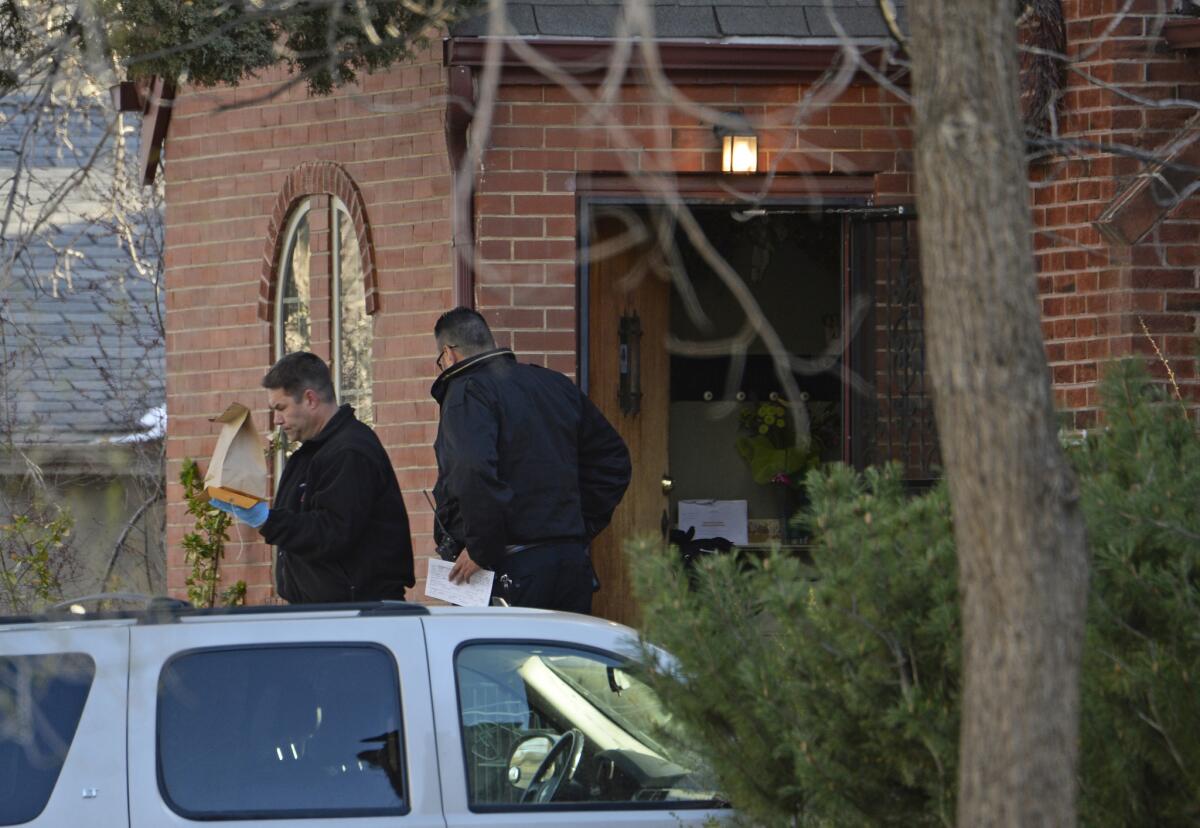Response probed in 911 call that ended in death, pot investigation

The nearly 13-minute 911 call in Denver that ended with the caller dead with a gunshot wound and her husband being taken to jail is being investigated to ensure the civilian dispatcher and responding officers properly handled the situation, police said.
The suspected shooter, Richard Kirk, was ordered held without bond by a Denver judge on Wednesday.
His wife, Kristine Kirk, reached 911 on Monday night to complain that her husband was hallucinating. She said the behavior was scaring her and their three children, according to a court document. She eventually told the dispatcher that her husband had retrieved a gun.
After screams, her voice is not heard again on the 911 tape, said police, who declined to release the recording during the ongoing investigation. The children were being cared for by relatives, Denver police spokesman Sonny Jackson said Wednesday.
The case has captured local attention because it touches upon two issues that have been in news lately -- police response times and the legalization of recreation marijuana.
As part of their review of the 911 call, authorities will look closely at the timing of events that unfolded after Kristine Kirk dialed 911 at 9:31 p.m.
The call was initially interpreted as a non-life-threatening domestic violence call, police said.
The suspected homicide occurred at the coupleâs home in a relatively low-crime neighborhood near the University of Denver. Family and friends told local media that the couple were friendly and well-liked.
Rising police response times have been a source of controversy in Denver, which has seen its corps of officers thin in recent years because of budget cuts and retirements. Last year, the department graduated its first academy class since 2008. But the number of uniformed officers still stands at about 1,300, down from a high of more than 1,500, Jackson said.
Data shared by the department with the media last year showed that response times for critical and urgent calls were slightly under 15 minutes while nonemergency response times averaged about 27 minutes. City auditors are in the midst of a thorough look at police responses.
âWe always want to be as quick as we can,â Jackson said. âEvery call has its nuances.â
The Denver County district attorneyâs office said the case had not yet been assigned to a prosecutor and that it was unclear whether Richard Kirkâs next court date had been set. He has not been formally charged.
The case has also drawn interest because police are investigating whether Kirk used marijuana prior to the incident and whether the drug contributed to the odd behavior described on the call.
Jackson said he could not comment on whether a drug test had been performed on Kirk or when results might be available.
âWeâre going to be doing everything thoroughly, as per normal,â he said.
Marijuana usage became legal in Colorado at the beginning of the year, and its potential link to crime is being closely monitored by critics.
âThis is all happening so quickly we canât keep up with it,â said Rep. Frank McNulty, a Republican lawmaker in Coloradoâs General Assembly.
McNulty said Wednesday that, according to media reports and testimony before a legislative committee, there have been almost daily incidents of children ingesting marijuana resembling candy or cookies, with some kids ending up in the hospital.
Special correspondent Jenny Deam in Littleton, Colo., contributed to this report.
Follow LATimes National on Facebook
ALSO:
Recent swarm of earthquakes in Idaho under scrutiny
Suspect in planting of hoax bomb at Boston Marathon route due in court
Guantanamo judge investigates claims of FBI misconduct in Sept. 11 case
More to Read
Sign up for Essential California
The most important California stories and recommendations in your inbox every morning.
You may occasionally receive promotional content from the Los Angeles Times.











